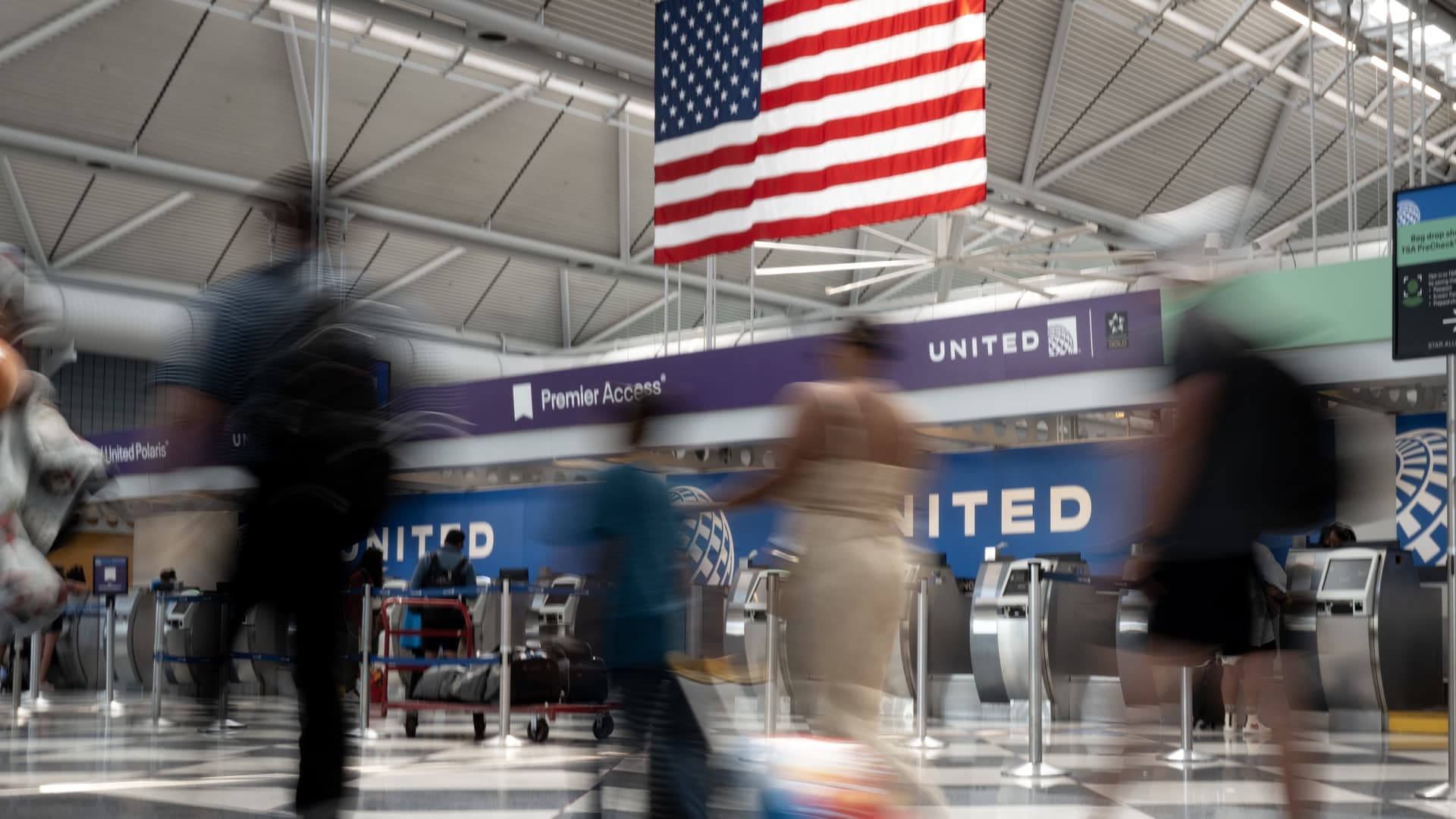Passengers pass through O’Hare airport in Chicago, July 3, 2024.
Scott Olson | Getty Images
Record summer air travel demand isn’t translating to record U.S. airline profits. Carriers will have to answer for that disconnect when they report quarterly results this month.
Some airlines have forecast record demand, and in some cases, revenue. But higher labor and other costs have eaten into airlines’ bottom lines. To adapt to slower demand growth and other challenges, some carriers have slowed if not halted hiring compared with hiring sprees when they rebuilt after the pandemic.
And some airlines are facing delays of new, more fuel-efficient aircraft from Airbus and Boeing at the same time that a Pratt & Whitney engine recall has grounded dozens of jets.
Yet U.S. airlines have increased capacity, flying about 6% more seats in July than they did in July 2023, according to aviation data firm OAG. The expansion is keeping airfare in check, and stocks in the sector have fallen behind the broader market.
The NYSE Arca Airline Index, which tracks 16 mostly U.S. airlines, is down almost 19% this year, while the S&P 500 has advanced more than 16%.
‘Clear as mud’
What the third quarter will look like for airlines is “clear as mud,” Raymond James analyst Savanthi Syth said in a note Friday, citing headwinds such as potentially weaker spending from coach-class clientele, the Paris Olympics’ impact on some Europe bookings, and possible changes in corporate travel demand.
Also, some travelers have been opting for trips in late spring and early summer, raising questions about late-summer demand.
Investors will get more insight into the traditionally slower tail end of summer and the rest of the year when airlines report quarterly results, starting with Delta Air Lines on Thursday.
Analysts consider Delta the best of the bunch, thanks in large part to the airline’s success in marketing more expensive, premium seats and its lucrative deal with American Express.
In April, Delta, the most profitable U.S. airline, forecast quarterly adjusted earnings of $2.20 to $2.50 a share for the second quarter, which would be down from the adjusted $2.68 a share it brought in a year earlier.
Delta, its rival United Airlines, which reports the following week, and Alaska Airlines are top picks for Wolfe Research airline analyst Scott Group, who said in a June 28 research note that the three have less earnings risk and better free cash flow than other carriers.
Shares of Delta and United are each up…
Click Here to Read the Full Original Article at Top News and Analysis (pro)…


